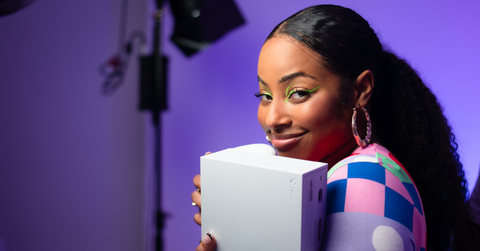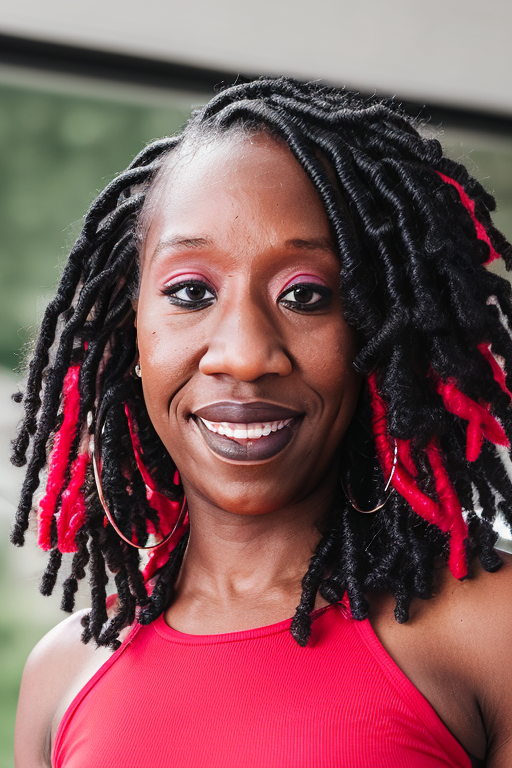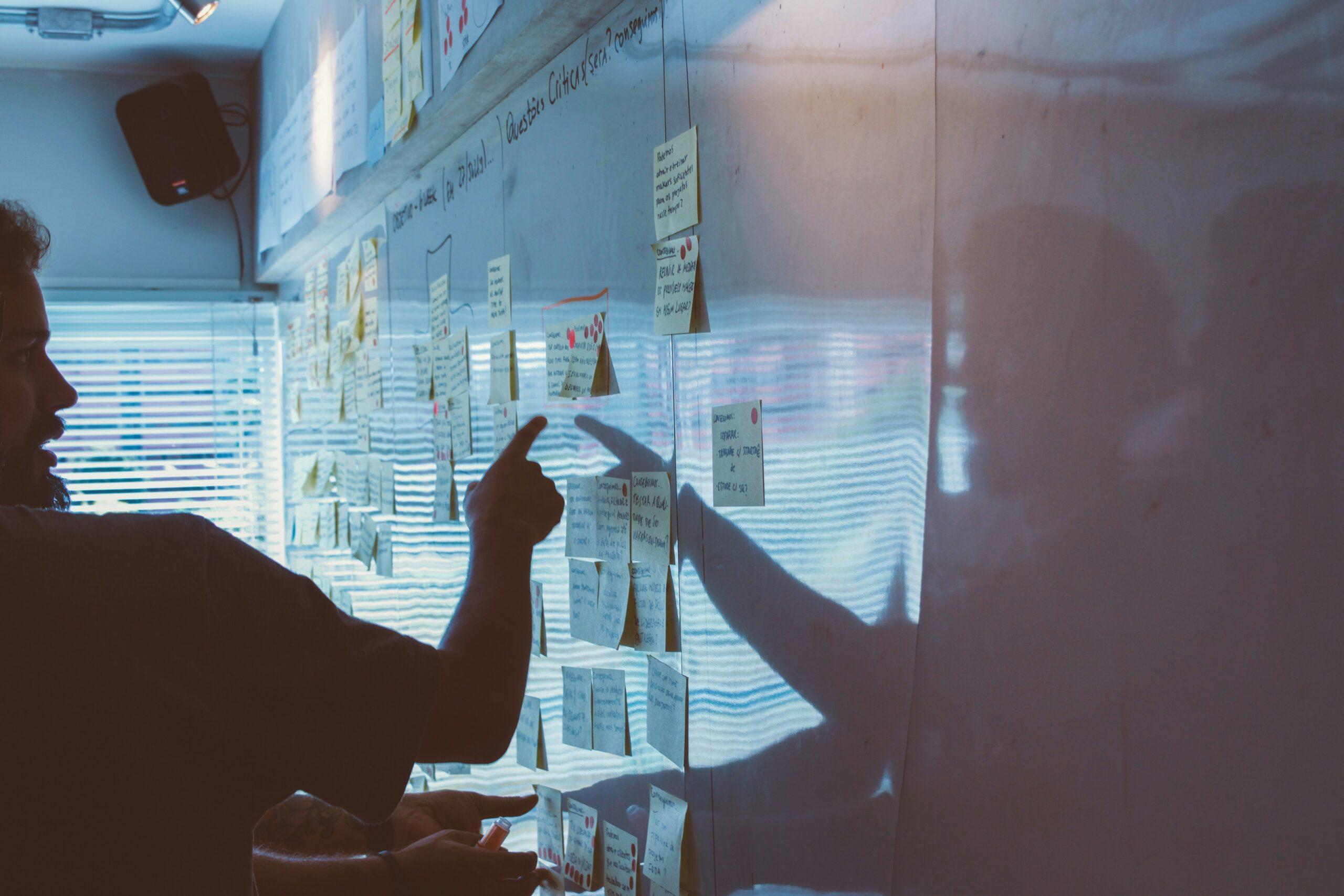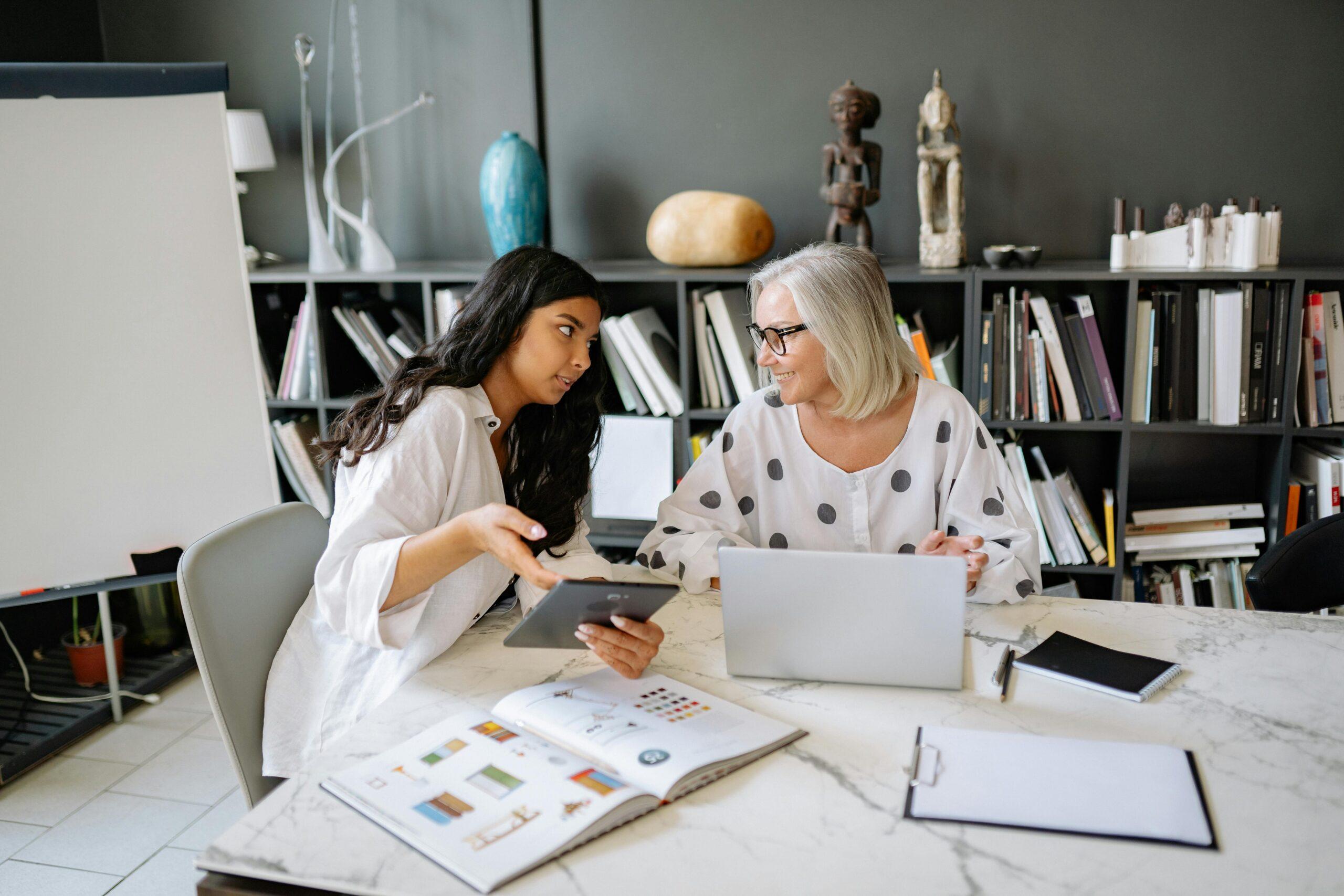Jay-Ann Lopez founded Black Girl Gamers (BGG), a community-powered business providing a safe space for Black women and non-binary individuals. Community-driven, BGG advocates for diversity and inclusion in gaming and amplifies Black women’s voices. The organization works with brands to promote equality for Black women through talent brokerage, career development, consulting, events, and content creation.
As a result of her contributions to leadership in the game industry and advocacy for Black women gamers, Jay-Ann received an Honorary Professorship at Norwich University of the Arts. She was featured in British Vogue as one of the top players changing the gaming and entertainment industry. The Institute of Digital Fashion named Jay-Ann one of the top 100 innovators of the year, and she also serves as a member and judge of the British Academy of Film and Television Arts.
The sought-after speaker has addressed diversity issues in gaming, entertainment, fashion, beauty, human resources, and marketing at prominent events such as E3, PAX East, Cannes Lion, EGX Rezzed, and Lesbians Who Tech & Allies Summit. In addition, Jay-Ann curates content and consults for brands such as Warner Bros., SEGA, Microsoft, Playstation, Maybelline, and YouTube. Publications like Black Enterprise, Revolt TV, BuzzFeed, Cosmopolitan, Afropunk, I-D, and Vogue have featured her work. In addition, she co-produces Gamer Girls Night In, a first-of-its-kind celebration of gaming, fashion, and beauty for women and non-binary individuals.
Her Agenda: Tell me about what Black Girl Gamers is and how it came to be.
Jay-Ann Lopez: Black Girl Gamers is a community-powered organization that specifically highlights and hopes to increase the equity of Black women in the gaming industry. It started in 2015 as a Facebook group. It came about because I was super ostracized from any other Black women who gamed around me. Most of my friends that gamed were men; some were white men, and some were exclusionary. The industry itself was very isolating and ostracizing when you’re a Black woman. So, I met some people online because I started my gaming channel, and they were Black women. I said, ‘Yo, I’m starting this Black girl gamers group. Do you want to join?’ So, they became some of the first community moderators of the group. It grew before COVID and during and is just the vocality of myself and the brand.
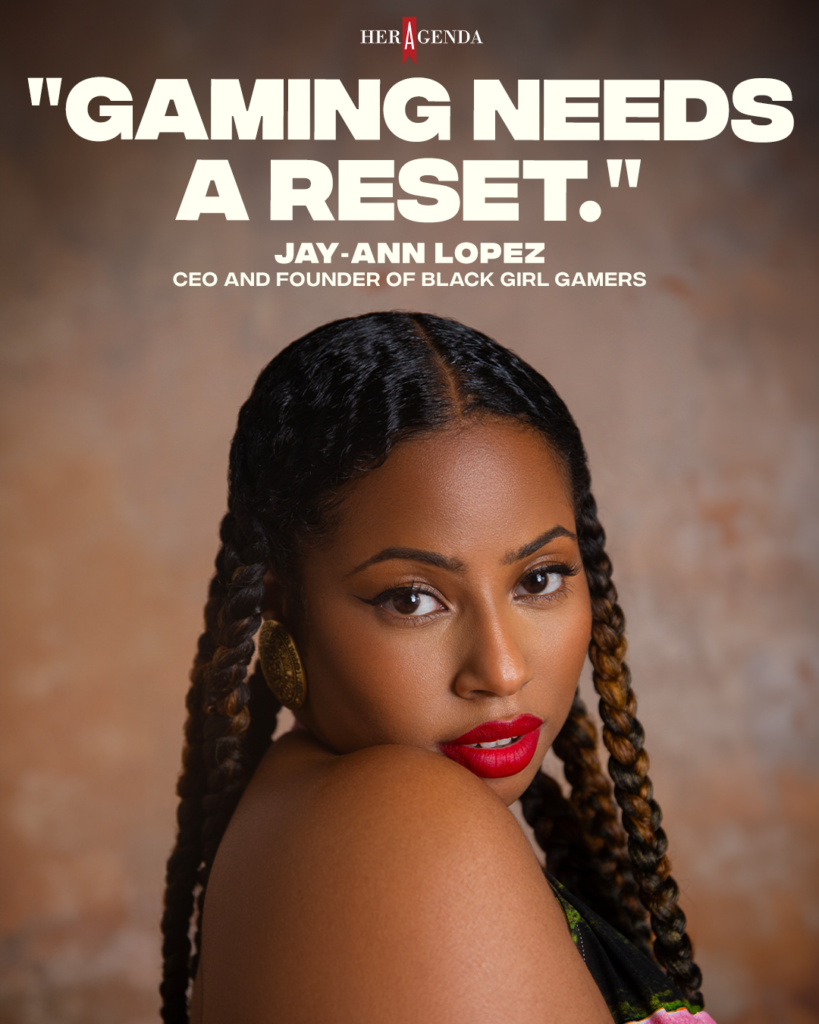
Her Agenda: As a community member, I have stayed in BGG because it is more inclusive than other Black-centric groups, especially in gaming.
Jay-Ann Lopez: We call out the industry for some of the issues we’re noticing when hiring Black women, Black representation in games, specifically Black women in games, and discrimination in the industry in general. Over time, we’ve grown and attracted partners, clients, and sponsors to create events to broker talent. So it can be for creating content to curate educational programs to heighten Black women’s equity in the industry and provide a kind of a pumping pipeline for Black women. So that’s what Black Girl Gamers is. We’re popular on different social media platforms. We have a community of around 10,000 people on Facebook, which is great, and we’re LGBTQIA+. We’re really trying to hone and create an intersectional Black woman and Black non-binary space that keeps gamers essentially safe.
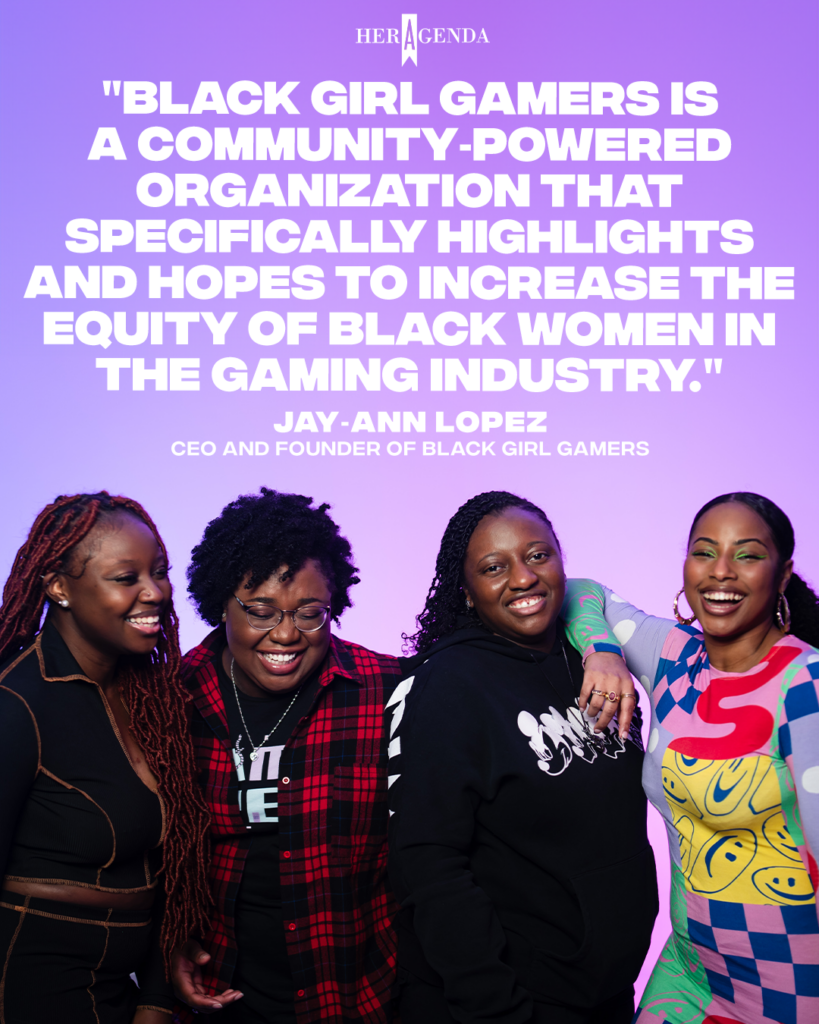
Her Agenda: What are some things you’re happy with regarding the [Black Girl Gamers] community?
Jay-Ann Lopez: We are currently changing up the Discord and some of the community experiences to make them better serve. One of the things I like is that people are quite forthcoming with their feedback so that we can act on it. We don’t know what we don’t know. So, we love to improve how we interact with the community year on year. One of my favorite things is watching, going, and reading through people’s introductions. Just seeing who’s who, where they come from, how they identify their experience, and seeing that this group has pulled so many different walks of life together.
When we hold our workshops, we see people attend and be invested in them. They don’t have to pay for it, and they feel they’ve got something that they can go to for their own good. It’s not like there’s a catch. We want to give you this to provide you with the skills and tools to change this industry. And they are connecting with friends. Some people have started becoming lifelong friends because of Black Girl Gamers. I like seeing those kinds of things from members.
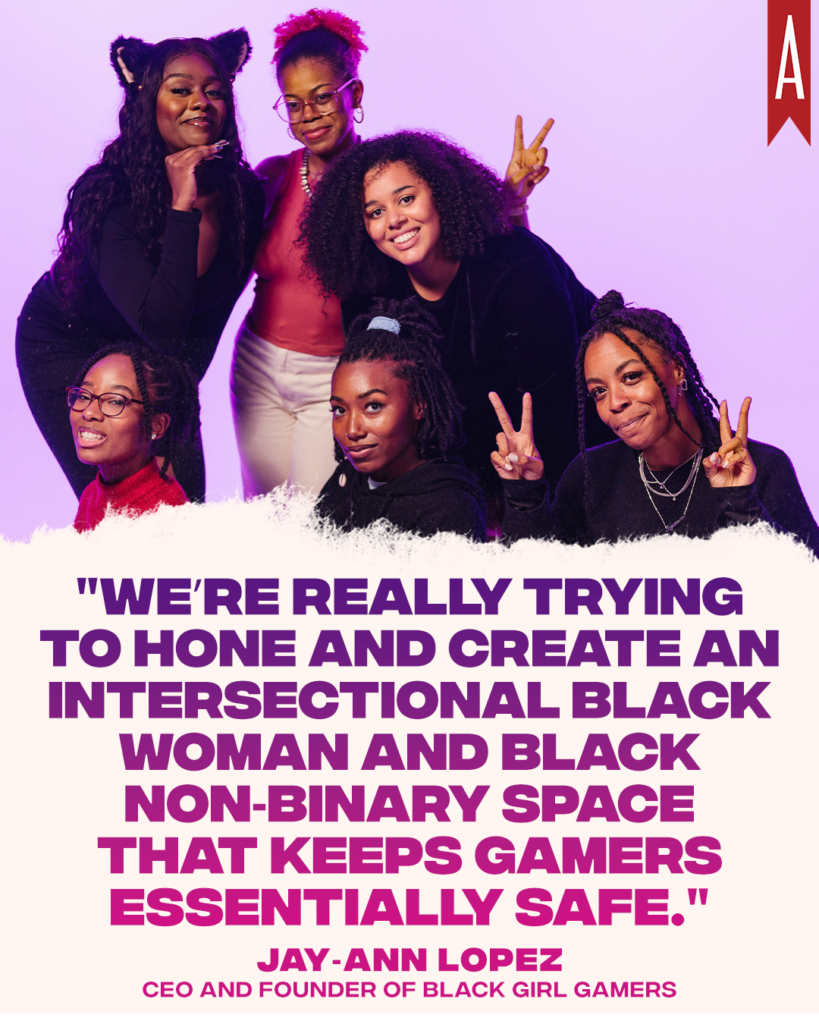
Her Agenda: Can you explain a few types of workshops and how you can offer them for free?
Jay-Ann Lopez: They’re free because we choose them to be; we don’t charge our members. We only charge for workshop content if someone hasn’t signed up for the free workshop and misses it.
But in terms of the types of workshops we offer, we’ve just finished a workshop with Adobe Express. They provided all the attendees with a three-month subscription to Adobe Express to create their branding for their own content creations. We’ve had voice-acting, journalism, and music creation for games workshops. Our upcoming classes for the next eight weeks are in partnership with Anything World. They will teach how to create a game from scratch in Unreal. We like to touch on all the different areas of the gaming industry because we don’t want people to think that if they don’t get into coding or art, they can’t work in this industry.
We’ve also done workshops with Unity and the Meta mentorship program with people working in the augmented reality field. We want to offer and be that pipeline for Black women into the gaming industry, regardless of what kind of entry point they choose. We choose to make them free. That’s a conscious choice.
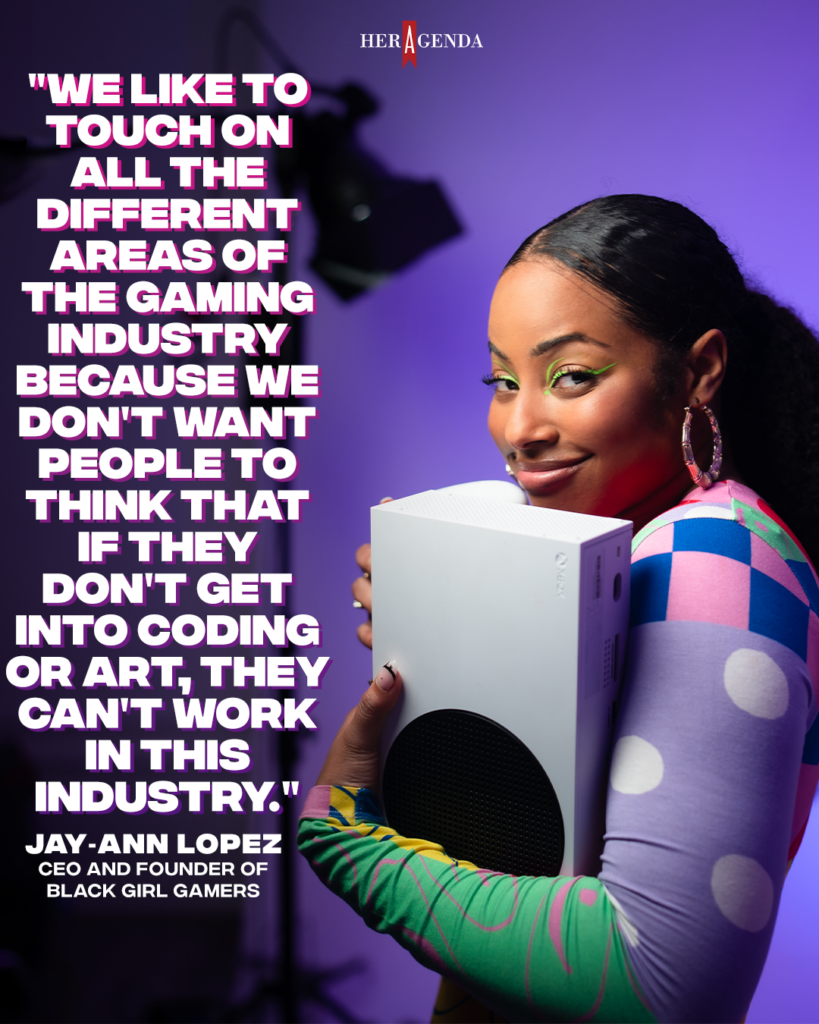
Her Agenda: How do you pitch BGG in the industry to where you could make a difference?
Jay-Ann Lopez: It’s not easy; there’s no special formula. It’s just pitching ourselves; sometimes it works, sometimes it doesn’t. The industry still provides a lot of lip service regarding what they want to do with diversity. We work with partners whose ethos is the same as ours and who want to see long-term change in the gaming industry. We also work with companies that want to enter the gaming industry and don’t want to do so in a way that furthers the status quo. But there’s still a lot of pushback and drawbacks now regarding diversity in the gaming industry. The surface-level advocacy that came about after George Floyd’s death is seemingly being pulled back. What we do is not something where we say, ‘Yes, this is how we did it, and it’s complete. We’ve figured it out.’ No, the industry’s still in that space where we must navigate.
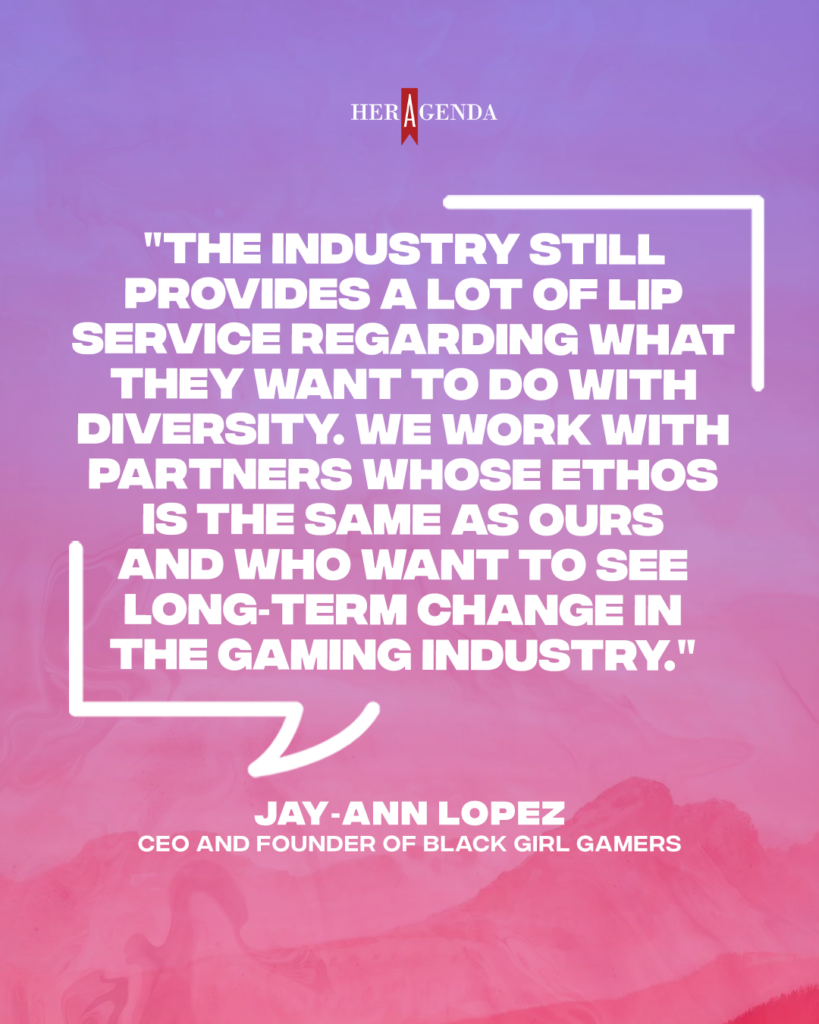
[Editor’s note: This interview has been edited for length and clarity.]

